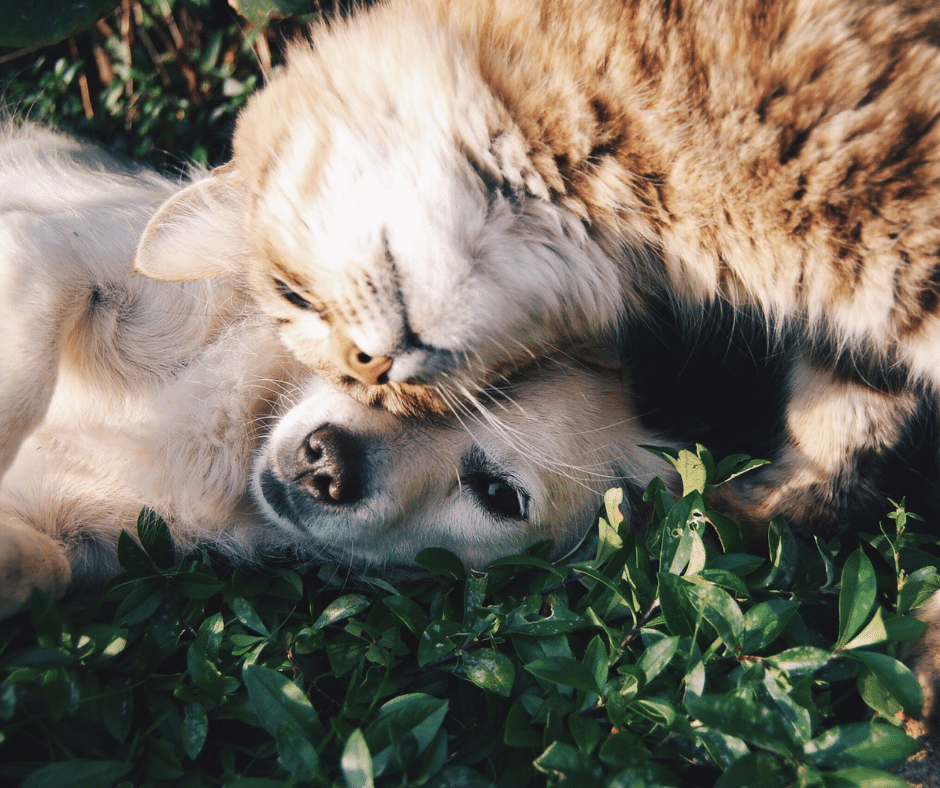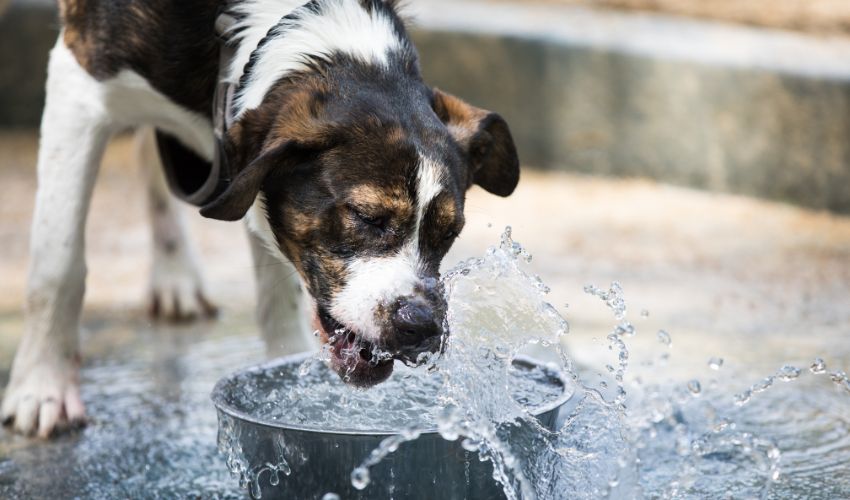Have you ever heard of colloidal silver? Colloidal silver is a solution that is made of tiny bits of silver floating in a liquid, cream, or gel to ensure even distribution of the silver particles. The silver particles are so small that they are considered as nanoparticles and can’t be seen with the naked eye. In the past, colloidal silver was commonly used in managing infections because of its anti-bacterial and antifungal properties. However, with the introduction of antibiotics, the use of colloidal silver against pathogens rapidly declined. Even though colloidal silver has been used for a very long time, it is crucial to approach colloidal silver with a keen eye considering evolving knowledge. While many rave about its benefits, it is important to consider scientific evidence and safety when making decisions for our beloved canine friends.
Silver has long been used for sterilization and its antibacterial properties. There are also products like wound dressing and bandages that are silver-infused which are commonly used in burn patients. Some studies indicate that Colloidal Silver may be used to:
- Kill bacteria — and that includes some antibiotic-resistant bacteria
- Manage skin infections
- Soothe skin inflammation
- Help in the process of healing infected wounds and burns
Anecdotal evidence suggests that colloidal silver can be used as a general remedy for a variety of canine ailments. Additionally, a study suggests that colloidal silver may be utilized to treat canine distemper. However, even with all these benefits, it is important to know the possible dangers and the proper and recommended dosage of using colloidal silver.
Is Colloidal Silver Safe to Use?
If you’re wondering whether colloidal silver is toxic to dogs, well the answer to that is both yes and no. When used inappropriately or at high concentrations, colloidal silver can be toxic to dogs. Also, it is always important to reach out to your veterinarian before using colloidal silver or any alternative treatment. In order to minimize the risk of toxicity, it is crucial to:
Consult with a Veterinarian – Before using colloidal silver or any alternative treatment, consult with a veterinarian. They can assess your dog’s specific health condition and give guidance on whether colloidal silver is appropriate for your canine companion
Follow Veterinary Recommendations – If your veterinarian recommends the use of colloidal silver, follow their guidelines regarding dosage and administration. Do not exceed the recommended amount
Monitor for Side Effects – Keep a close eye on your dog for any signs of adverse reactions or toxicity. If you observe unusual symptoms, contact your veterinarian immediately
In summary, while some people use colloidal silver for dogs, caution is always advised due to the potential for toxicity. It’s crucial to prioritize the guidance of a veterinarian and to use colloidal silver only under the supervision of a veterinarian
Benefits of Using Colloidal Silver for Dogs
While some people believe in the potential benefits of colloidal silver for dogs, it’s essential to note that scientific evidence supporting these claims is limited, and the use of colloidal silver in pets can be controversial. The purported benefits of colloidal silver for dogs include:
Colloidal Silver for Eye Infections – Colloidal silver can be used to treat eye problems in dogs. Using colloidal silver is painless, so this can be applied directly to your canine buddy’s eyes.
Colloidal Silver for Ear Infections – Colloidal silver drops when applied directly to the ear canal can fight off ear infections such as canine otitis and yeast infection.
Colloidal Silver for Dog Wounds – Colloidal silver can be used in the management of skin injuries such as wounds and burns and also skin infections
Colloidal Silver for Dog Skin Allergies – It is believed that colloidal silver can reduce the itchiness and skin dryness that causes discomfort and pain in our canine companions, it is usually sprayed on the skin
Colloidal Silver for Dog Yeast Infection – Colloidal silver can be used for fungal infections such as ringworm in our canine companions, this is when applied topically. It is believed to have a soothing effect that will calm the infection and ability to stimulate tissue renewal.


Different Formulations of Colloidal Silver for Dogs
Colloidal silver for dogs is available in various formulations, and it can be administered through different methods. It’s important to note that the use of colloidal silver in our canine friends should be approached with caution and under the guidance of a veterinarian. Here are some common preparations and administration methods for colloidal silver in our canine friends:
Liquid Form
- Oral Administration – Colloidal silver is often available in liquid form, and a veterinarian may recommend a specific dosage for oral administration. This can be mixed with your dog’s food or given directly into the mouth.
- Water Additive – Some pet owners add colloidal silver to their dog’s water bowl, although this method may make it challenging to control the exact dosage of colloidal silver
Topical Form
- Spray or Gel – Colloidal silver is available in spray or gel formulations for topical application. These are often used for wound care, skin infections, or ear and eye issues. Application methods may include spraying directly onto affected areas or applying with a cotton ball or swab
- Shampoo – Colloidal silver may be an ingredient in certain pet shampoos, intended for use in dogs with skin conditions. Follow the product instructions for proper usage
Eye and Ear Drops
- In some cases, colloidal silver eye and ear drops may be recommended for dogs with eye and ear infections. Consult a veterinarian and ensure proper administration recommended by your veterinarian
Gel Capsules or Tablets
- Colloidal silver may also be available in the form of gel capsules or tablets. These are designed for oral ingestion and are typically given with food. Dosage instructions should be provided by a veterinarian
Potential Side Effects of Using Colloidal Silver
Pet owners need to be aware of a few possible hazards and side effects associated with colloidal silver for dogs. Below are some of the most common colloidal silver side effects for dogs:
- Argyria
- General malaise
- Lethargy
- Weight loss
- Organ and tissue damage
- Liver problems
- Neurological effects such as tremors and seizures
The chances of these side effects increase with the incorrect use of colloidal silver. Therefore, it is important to stick to the instructions and dosage recommended by a veterinarian.
















